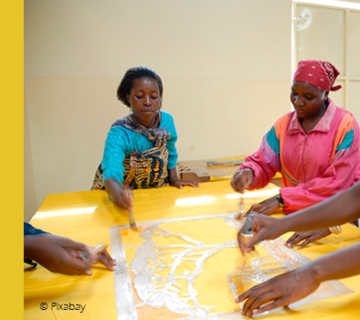Sophia Web Academy (SWA) constitutes an original way of providing training in the culture of unity; it is an experiment that IUS (Sophia University Institute) has begun and it aims to respond to the needs that many people are experiencing now. The course provides an advanced level of training and consists of two specific elements – culture and leadership of unity. It targets both people who already know the Focolare Movement and others who do not. Michele Zanzucchi, professor of communication at Sophia and coordinator of SWA, tells us about it.
What is the mission of Sophia Web Academy?
Sophia Web Academy (SWA) proposes to investigate and present the main conceptual and practical expressions of the charism of unity. It explicitly attempts to examine and compare the work of all those who have initiated cultural reflection that has developed from the mystical intuition of Chiara Lubich, founder of the Focolare Movement.
How did this idea come about?
It came about during the pandemic. There was an increase in the requests for formation on the foundations of the charism of unity and it became obvious that it was possible to give satisfactory training online. In the Focolare Movement, there is a need for a twofold formation course for people who have leadership roles, both at central and local levels. These courses should offer participants adequate preparation for the challenges of our times so that they can correspond appropriately bearing in mind the great gift of the charism of unity they have received. The courses should also equip some of members as “managers” of groups of varying numbers of people.
How is it structured?
The first year of the online specialist course consists of a total of 700 hours – 180 lectures, 60 hours of work under the guidance of tutors or in dialogue with teachers, and 460 of personal study – corresponding to about 30 academic credits, spread over 8 months, from 28 November 2021 to 3 July 2022. Starting from a common base of about 44 hours of teacher centred education, the following 120 hours will be divided into two areas: “culture of unity” and “dialogical leadership”. Then, during the last “three days”, there will be 16 hous of interdisciplinary teaching and learning.
What are the entry requirements?
You can enrol in the course as a student or as an auditor. Students need to have a degree, participate in the lessons, are entitled to a tutor, sit the exams and will receive a university certificate. Auditors, on the other hand, can enrol without any special qualifications, attend courses, are not entitled to a tutor, do not sit exams and will receive a university extension certificate of attendance. As auditors it is possible to enrol in individual modules. The full course of study can be completed in one or two years.
One of the two areas of study that SWA offers concerns the “culture of unity”. What are the goals to be achieved?
One of the qualities of a leader in a rapidly changing world is wisdom. The specific task of Sophia, according to Chiara Lubich, is precisely that of ‘teaching wisdom’, which is also acquired by listening to the voices – and entering into dialogue with them – of those who have sought the truth throughout the centuries. For a leader, this means acquiring the ability to see far ahead and also to think strategically about the processes to be put in place today to prepare a more humane tomorrow. An essential part of the course is dedicated to Chiara Lubich’s experience and thought in the context of the Focolare Movement, a very valid contribution to the integral formation of leaders.
How can the topic of “leadership” be linked to the notion of unity?
SWA offers a space to know and learn about leadership which is strongly characterised by dialogue and service, attention to the least, communion, active involvement and flexibility. This will lead to an increased capacity for strategic decision-making and choice, team work and communication. The leadership course is based on 5 didactic units that complement each other in an organic way, combining theoretical and practical aspects. “Fundamentals of leadership”, “Group management”, “Personal development”, “Flexible Work”, “Types and models of leadership” form the basic elements of this innovative and engaging course.
For registration and further information, contact: https://swa.sophiauniversity.org
Maria Grazia Berretta


 Italiano
Italiano Español
Español Français
Français Português
Português




No comment